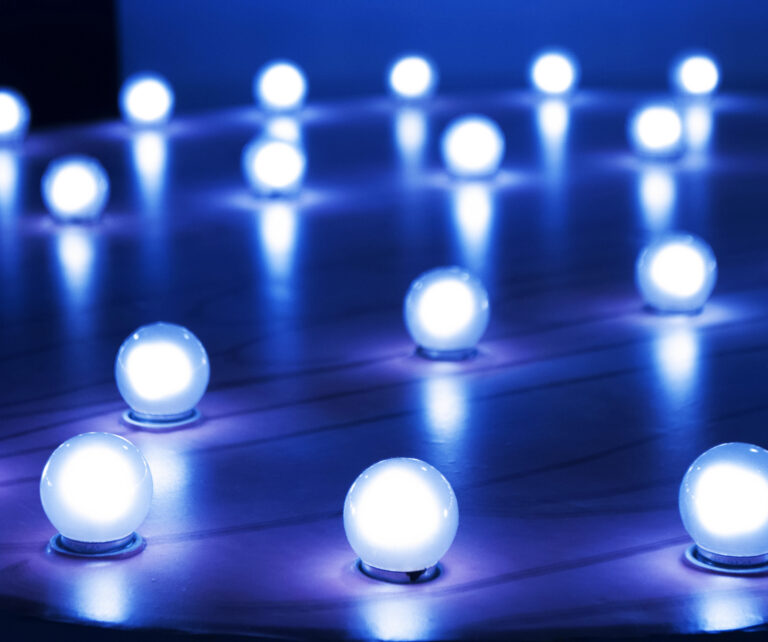The Future of Lighting: Exploring the Advantages of LED Lights in Dubai

Tech Support
In the fast-paced city of Dubai, where innovation never sleeps, the future of lighting is taking a bold turn with the advent of LED lights. These energy-efficient wonders are not only changing the way we illuminate our surroundings but also revolutionizing the way we think about sustainability and cost-effectiveness. In this article, we will explore the many advantages of LED lights in Dubai and how they are reshaping the lighting industry.
LED lights offer a multitude of benefits that make them the lighting solution of choice for businesses, residents, and even the government in Dubai. With their long lifespan, lasting up to 25 times longer than traditional incandescent bulbs, LED lights help reduce maintenance and replacement costs significantly. Moreover, their energy efficiency translates into lower electricity bills, making them an ideal choice for budget-conscious consumers.
Aside from the financial advantages, LED lights also boast environmentally-friendly features. They consume up to 75% less energy than traditional bulbs, leading to reduced greenhouse gas emissions and a smaller carbon footprint. As Dubai strives to achieve its sustainability goals, LED lights are playing a pivotal role in creating a greener future.
Join us as we delve deeper into the world of LED lighting in Dubai, discovering the untapped potential and endless possibilities they bring to the table.
Advantages of LED lights
In the fast-paced city of Dubai, where innovation never sleeps, the future of lighting is taking a bold turn with the advent of LED lights. These energy-efficient wonders are not only changing the way we illuminate our surroundings but also revolutionizing the way we think about sustainability and cost-effectiveness. In this article, we will explore the many advantages of LED lights in Dubai and how they are reshaping the lighting industry.
Energy efficiency and cost savings
LED lights offer a multitude of benefits that make them the lighting solution of choice for businesses, residents, and even the government in Dubai. With their long lifespan, lasting up to 25 times longer than traditional incandescent bulbs, LED lights help reduce maintenance and replacement costs significantly. Moreover, their energy efficiency translates into lower electricity bills, making them an ideal choice for budget-conscious consumers.
LED lights also emit less heat, reducing the strain on air conditioning systems. This not only leads to energy savings but also contributes to a more comfortable environment. Additionally, LED lights do not contain hazardous materials like mercury, making them safer and easier to dispose of.
Durability and lifespan of LED lights
One of the key advantages of LED lights is their exceptional energy efficiency. They consume up to 75% less energy than traditional bulbs, resulting in significant cost savings. This is particularly important in Dubai, where the demand for electricity is high. LED lights not only reduce energy consumption but also contribute to a more sustainable future by reducing greenhouse gas emissions and the city’s carbon footprint.
Furthermore, LED lights have a longer lifespan compared to traditional bulbs, reducing the frequency of replacements and maintenance. This not only saves money but also minimizes the inconvenience of frequent bulb changes. The durability of LED lights makes them an ideal choice for outdoor applications, as they can withstand harsh weather conditions, including extreme heat and humidity.
Environmental benefits of LED lights
LED lights are known for their exceptional durability and long lifespan. Unlike traditional incandescent bulbs, LED lights do not have a filament that can easily break. Instead, they are made of solid-state components, making them highly resistant to shock, vibrations, and external impacts. This durability ensures that LED lights can withstand the rigors of everyday use, making them suitable for various applications in Dubai, from residential buildings to commercial spaces and outdoor lighting.
The lifespan of LED lights is another significant advantage. While traditional incandescent bulbs last for around 1,000 hours, LED lights can last up to 25,000 hours or more. This extended lifespan not only reduces maintenance costs but also contributes to a more sustainable lighting solution. With LED lights, residents and businesses in Dubai can enjoy reliable and long-lasting illumination without the hassle of frequent replacements.
Improved lighting quality and customization options
In addition to the financial advantages, LED lights also boast environmentally-friendly features. As mentioned earlier, LED lights consume significantly less energy compared to traditional bulbs. This reduced energy consumption translates into lower greenhouse gas emissions and a smaller carbon footprint. In a city like Dubai, where sustainability is a top priority, LED lights play a crucial role in achieving energy efficiency targets and creating a greener future.
Furthermore, LED lights do not contain hazardous materials such as mercury, which is commonly found in traditional fluorescent bulbs. This eliminates the risk of mercury pollution, both during the manufacturing process and disposal. LED lights are also fully recyclable, making them a sustainable choice for eco-conscious consumers.
LED lights in Dubai: Current usage and future potential
LED lights offer superior lighting quality compared to traditional bulbs. They produce a bright, focused light that is evenly distributed, enhancing visibility and reducing eye strain. LED lights also have a high color rendering index (CRI), which means they accurately display colors, making them suitable for applications where color accuracy is important, such as in retail stores and art galleries.
Additionally, LED lights offer a wide range of customization options. They can be dimmed, allowing users to adjust the brightness according to their needs and preferences. This flexibility in lighting control not only creates a more comfortable environment but also contributes to energy savings. LED lights can also be programmed to change colors or create dynamic lighting effects, adding a touch of creativity and ambiance to spaces in Dubai.
Government initiatives promoting LED lights in Dubai
Dubai has embraced LED lighting on a large scale, recognizing its numerous advantages. LED lights are widely used in various sectors, including commercial buildings, residential complexes, public spaces, and outdoor lighting. The government of Dubai has implemented initiatives to encourage the adoption of LED lights, promoting energy efficiency and sustainability across the city.
The potential for LED lights in Dubai is vast. As the city continues to grow and develop, LED lighting will play a crucial role in creating a sustainable and energy-efficient environment. With ongoing advancements in LED technology, we can expect to see even more innovative applications of LED lights in the future, from smart lighting systems to integrated lighting solutions that enhance the overall urban experience.
Tips for choosing the right LED lights for your needs
The government of Dubai has taken proactive steps to promote the adoption of LED lights across the city. The Dubai Lamp initiative, launched in 2016, aims to replace 10 million conventional bulbs with LED lights by 2021. This ambitious project not only reduces energy consumption but also contributes to the city’s sustainability goals.
Additionally, the Dubai Electricity and Water Authority (DEWA) offers incentives and subsidies for businesses and residents to switch to LED lights. These initiatives make LED lighting more accessible and affordable for everyone in Dubai, encouraging widespread adoption and contributing to a greener future.
Conclusion: Embracing the future of lighting with LED lights in Dubai
When choosing LED lights for your needs in Dubai, there are a few factors to consider. First, determine the appropriate brightness level for your space. LED lights are available in various lumen outputs, so it’s important to select the right level of brightness to ensure optimal visibility.
Next, consider the color temperature of the LED lights. Color temperature is measured in Kelvin (K) and determines the warmth or coolness of the light. For residential spaces, a warmer color temperature (around 2700K to 3000K) creates a cozy ambiance, while cooler color temperatures (around 4000K to 5000K) are suitable for task lighting in commercial or outdoor areas.
Lastly, choose LED lights from reputable manufacturers to ensure quality and performance. Look for certifications such as Energy Star and DLC (DesignLights Consortium) to ensure that the LED lights meet industry standards for energy efficiency and reliability.
